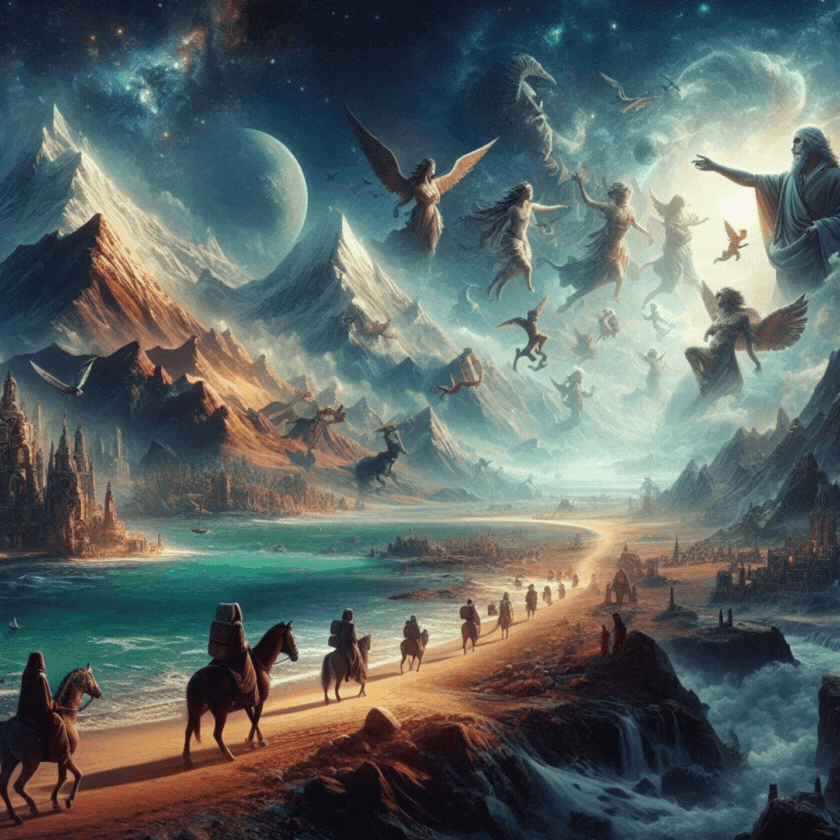
Weeks, or probably months ago I opened a door and tapped into a complex and fascinating mix of ancient mythology, comparative religious studies, and modern interpretations of early human civilizations.
I brought you several amazing posts that connect the Sumerian creation stories, the Anunnaki, and biblical accounts, particularly the Book of Genesis, in ways that open up possibilities for alternative readings of ancient texts.
- My Musical Sunday School Sessions - Maybe Darwin & The Bible Were Right?
- My Musical Sunday School Sessions - What Kinda Gods Fall From The Sky?
- My Musical Sunday School Sessions - Did You Know The Bible told us to be vegetarian first and later to eat meat?
- My Musical Sunday School Sessions - Why Noah's Flood Changed Everything
- My Musical Sunday School Sessions - The Creation Story of Adam vs the Creation of Adamu
- My Musical Sunday School Sessions - Will We Surpass Our Creator
- My Musical Sunday School Sessions - Did Their DNA Engineering Mess Up Our Minds?
- My Musical Sunday School Sessions - Why Are There So Many Gods In The Bible
- My Musical Sunday School Sessions - God Tried To Drown Us All Because Of The Human Hybrids
I took you on a journey exploring a powerful reinterpretation of ancient texts through the lens of alternative history.
And my journey started with just one word; Elohim
Elohim: A Plurality or a Singular Divine?
The use of Elohim and the fact that it's plural is the cornerstone of my story. The Hebrew term "Elohim" being grammatically plural has led to debates among scholars and theologians.

In the context of Genesis and other parts of the Hebrew Bible, "Elohim" is often paired with singular verbs. This has been happening over centuries of re-editing making Elohim refer to the one God, Yahweh, The God of Israel, removing the plural hints that refer to earlier polytheistic traditions. But more about that in a bit.
Sumerian Texts
For far too long, I’ve been immersed in these Sumerian texts, which predate the Old Testament and echo stories from the Bible—especially Genesis. This will be the 10th and last commandment I will give you.
To me, this journey made it undeniable that these ancient writings laid the foundation for much of what later became sacred to the people of Israel.
But first the Anunnaki.
The Pantheon of the Anunnaki and the Elohim
These Sumerian Anunnaki gods were described as "those who came from the heavens to earth," and were believed to have played a pivotal role in the creation of humanity.
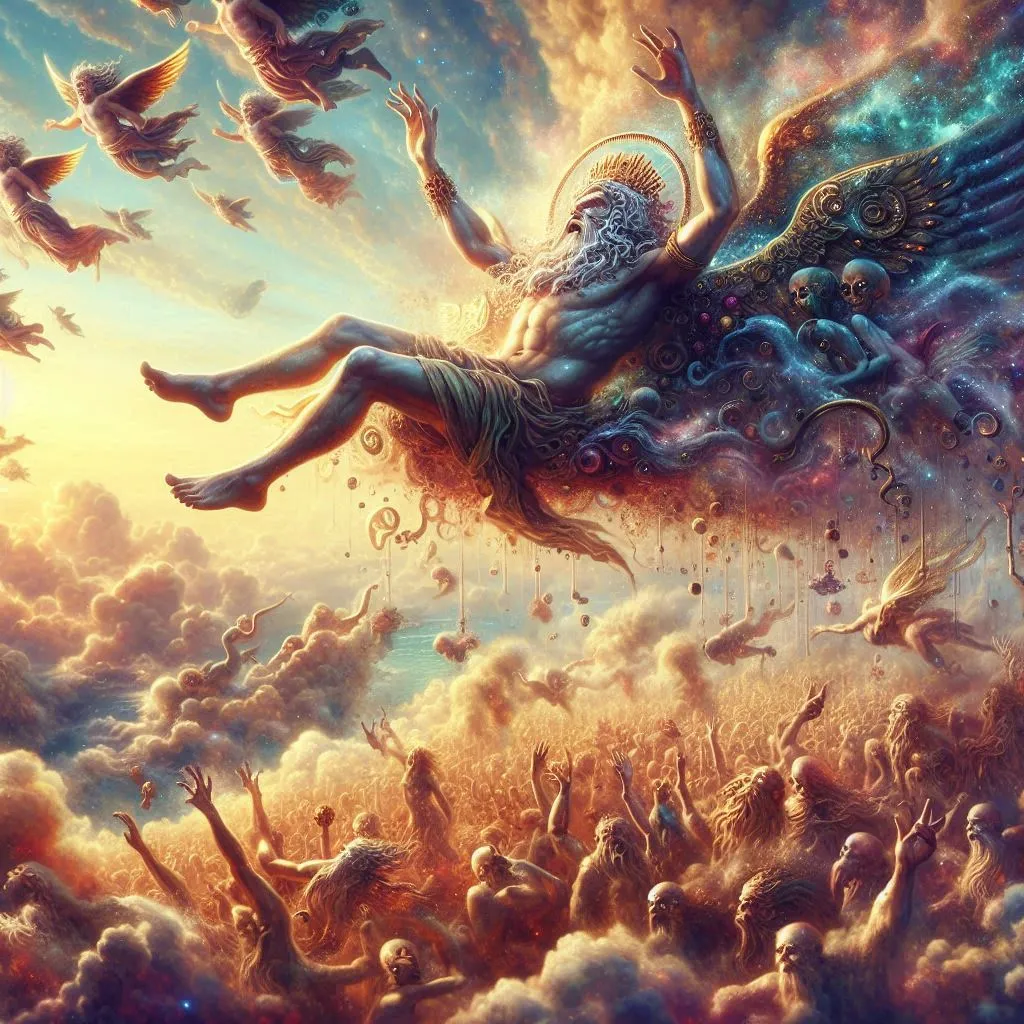
The Sumerian stories tell about humans being created by mixing clay with the blood of a sacrificed god to ease the burdens of the lesser gods. This concept closely mirrors the story of the Elohim in Genesis 1:26, where God says, “Let us make man in our image.”
This phrasing in Genesis suggests deliberation among a group of divine beings, a council, much like the Anunnaki.
It’s essential to understand that both the Sumerians and early Israelites envisioned a divine council—a group of gods or celestial entities that participated in creation and governance.
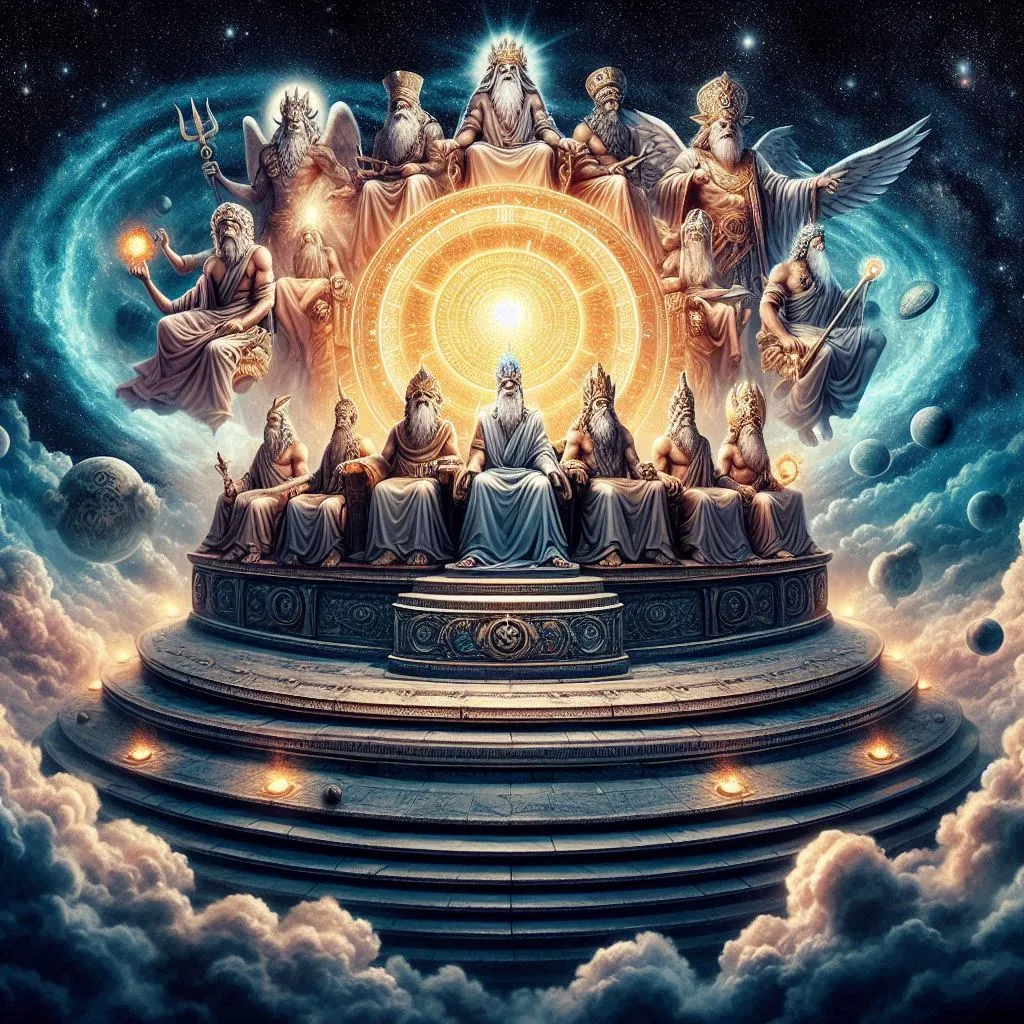
The Sumerian accounts speak of divine councils with multiple gods, or at least a pantheon of celestial beings known as the Anunnaki, who bear striking resemblance to the Elohim described in the Bible.
CLUE: In the Bible, this divine council disappears as monotheism takes hold, but the remnants of this belief system linger in phrases like "Let us create man" and references to other gods in the text.
Because why order to not worship other Gods, if there is only one?
Yahweh the angry jealous God of Isreal demanded that other Gods could no longer be worshipped and somehow that worked very well and paved the road for the broader monotheistic religions.
The Shift from Polytheism to Monotheism: Yahweh’s Supremacy
The thing that I find fascinating is the transition from a pantheon of gods to the monotheistic worship of Yahweh.
It seems probable that Yahweh began as one of many gods.
He was the God of Israel among a pantheon of Elohim.
Yet, over time, Yahweh consolidated power, becoming the sole deity worshiped by the Israelites.
This transition is evident in the Ten Commandments, where the first law states, “You shall have no other gods before me.”
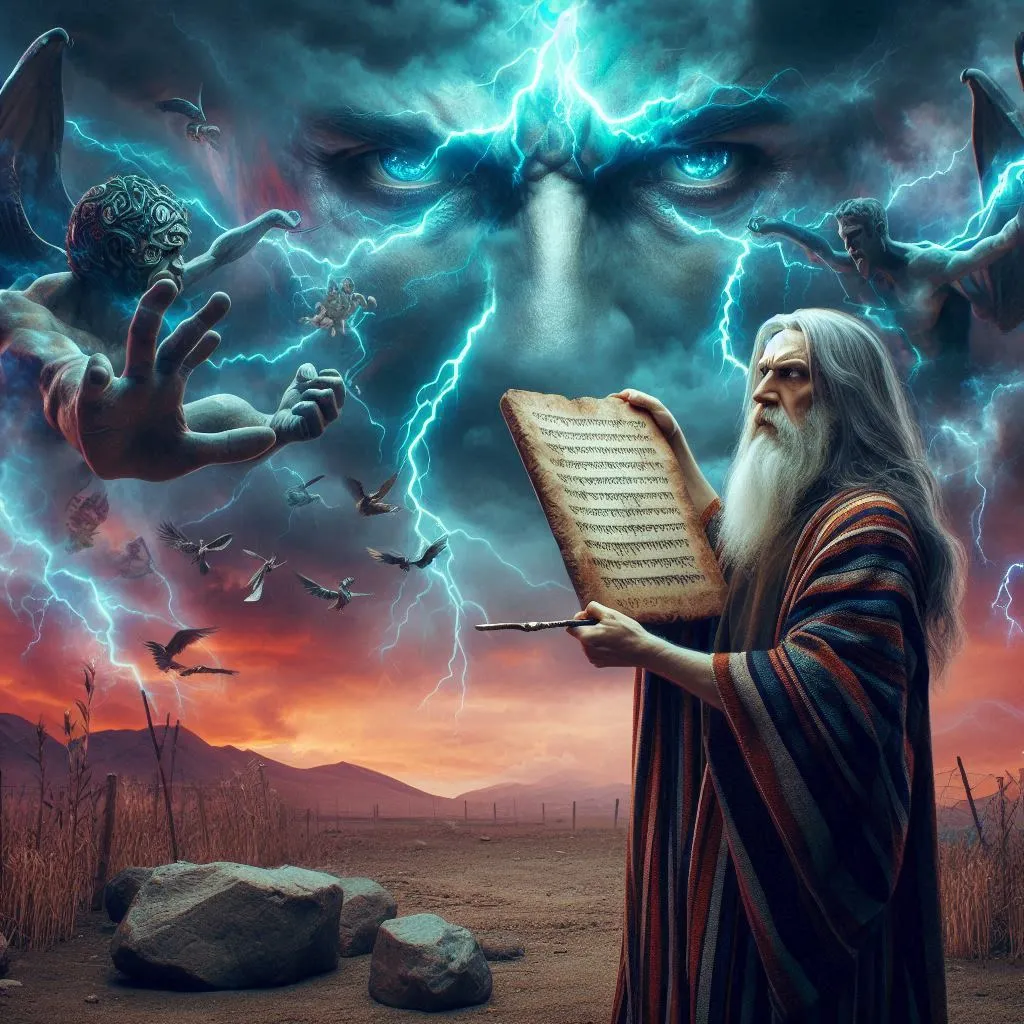
The proof of those other Gods, who they tried to erase, is found in remnants scattered throughout the Old Testament.
However, Yahweh’s rise to supremacy wasn’t smooth. The divine council—the Elohim—posed a threat to his exclusive rule, and the stories of Yahweh's jealousy, anger, and determination to destroy other gods reflect this struggle.
Yahweh was not the all-loving, gentle god of later Christian theology. He’s a warrior god, a deity who had to fight to secure his position as the one true god.
Humans Made Yahweh The One True God
What if Yahweh’s divine supremacy had nothing to do with him but was a combination of historical luck and the strategic rewriting of history?
What if the stories of other gods were suppressed or destroyed, allowing Yahweh’s followers to present him as the only god worth worshiping?
This idea aligns with the practice of ancient rulers and empires who rewrote history to suit their needs, erasing the contributions and achievements of their rivals.
In this case, Yahweh’s followers may have done the same, gradually erasing the existence of the other Elohim from the biblical narrative.
The God of Israel, then, may have been just one of many powerful beings who sought control over humanity.
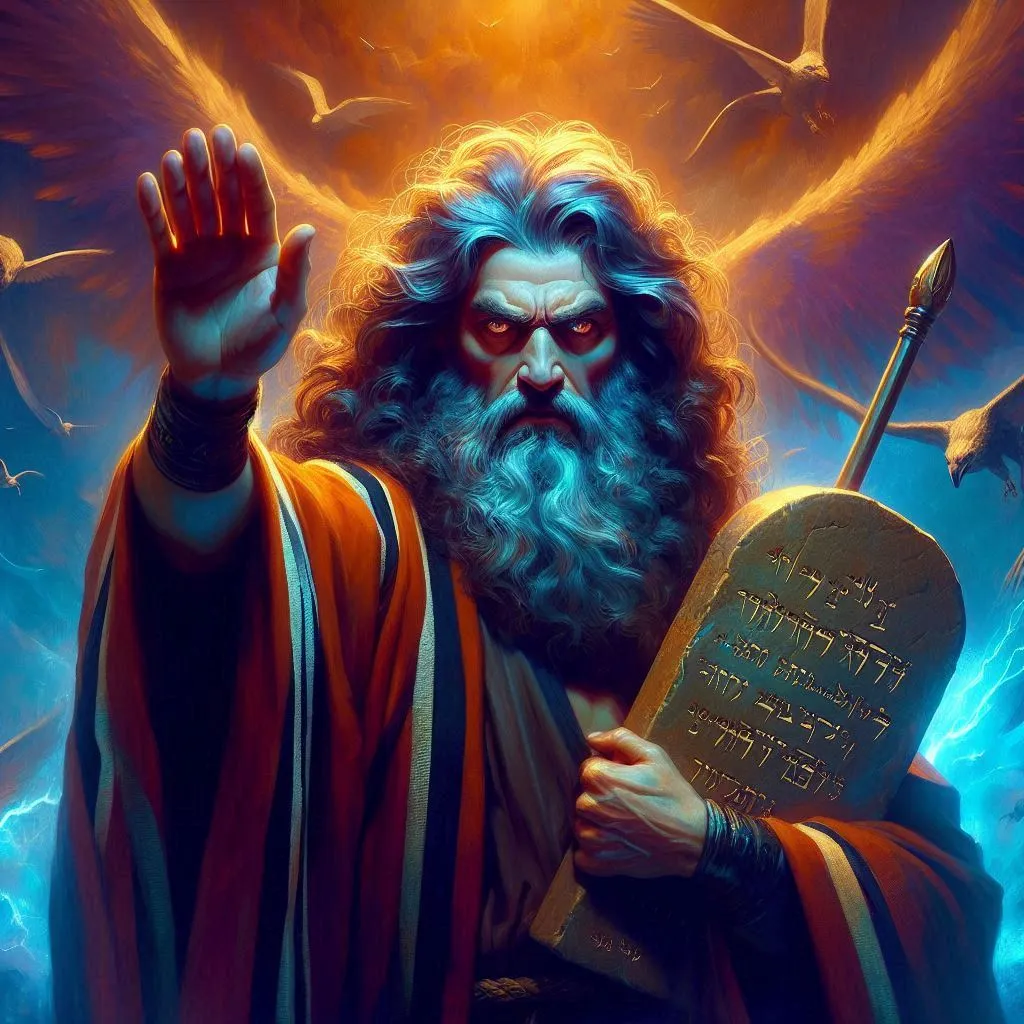
It were the stories of Yahweh´s temper and his easy-to-follow commandments that were used by human leaders to move to a mono-God culture, but why?
Cultural Assimilation and the Transformation of Beliefs
The transition from acknowledging extraterrestrial creators to embracing a singular omnipotent God is a cultural adaptation that takes centuries.
The reasoning behind it is that societies often assimilate narratives to foster unity, especially when encountering new belief systems. By framing their origins within a divine context, communities reinforce their leaders' authority, aligning power structures with religious legitimacy.
The church has integrated elements of pagan traditions into its narratives to lower the threshold and encounter less resistance.
The adaptation of the Adamu myth into the Adam story exemplifies this cultural synthesis, enabling a seamless transition from the concept of extraterrestrial beings to that of a singular divine presence.
My Musical Sunday School Sessions - The Creation Story of Adam vs the Creation of Adamu
Theological narratives thus serve dual purposes: they establish social cohesion and provide a moral framework that justifies the authority of religious leaders.
The simplification of complex narratives makes the religion more accessible and allows the leaders to dominate in the name of One God without being opposed by any other Gods as there are none.
The single-god religion worked well for those in power because things were more centralized and easier to govern. As in heaven, so on earth.
The Genesis Creation Story as a Rewritten Myth
Hence there is proof that the Bible has been reworked, removing hints to the council of Gods to favor the Mono-God narrative. But the earlier Sumerian stories were used to fill the book of Genesis.
Yes, that book is filled with rewritten stories. For example, the Sumerian myth of Atrahasis tells of the god Enki warning a mortal about an impending flood—much like the biblical story of Noah.
My Musical Sunday School Sessions - Why Noah's Flood Changed Everything
In both accounts, a chosen individual is saved by building an ark or boat, which ensures the survival of humanity.
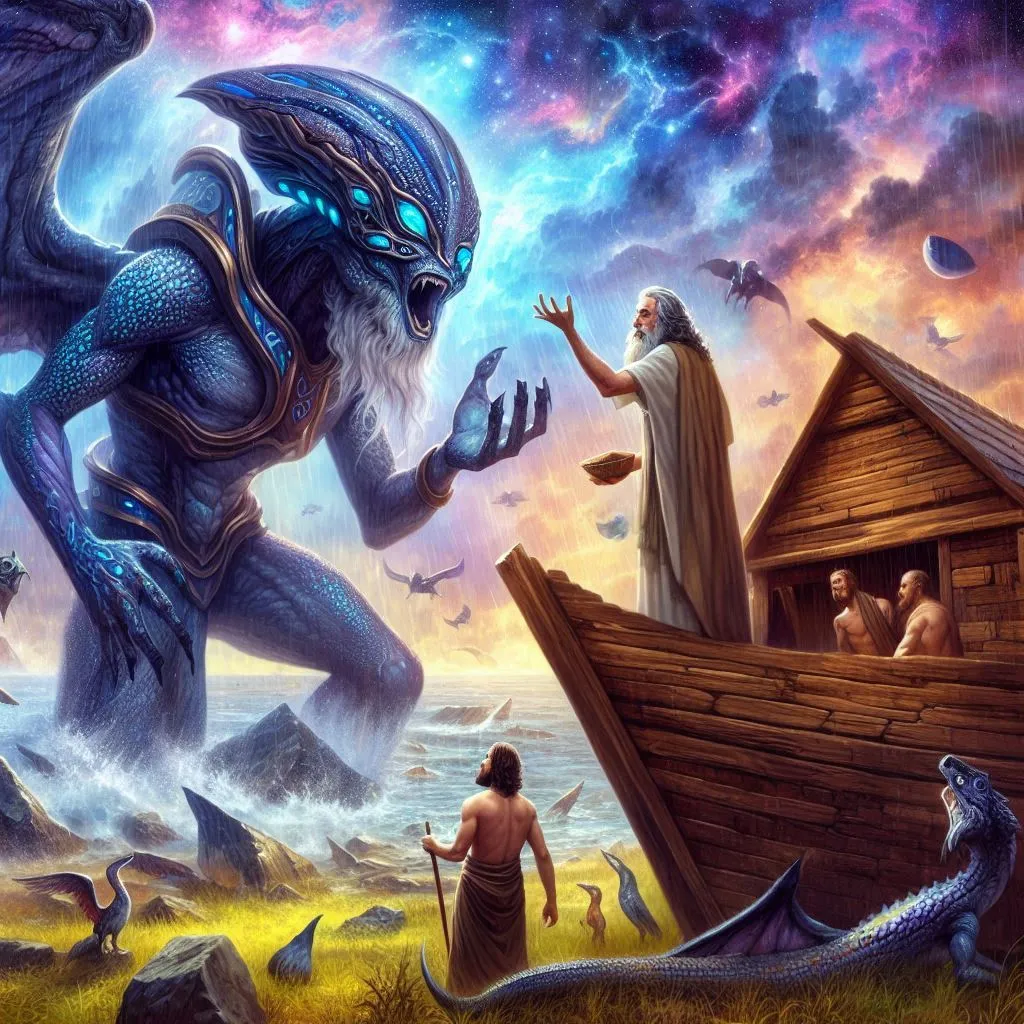
The reasons behind the flood are also strikingly similar: the gods, whether Anunnaki or Elohim, become frustrated with humanity. The Anunnaki were tired of human noise and chaos, while the Bible says God was grieved by human wickedness, and the Nephilim (human/angel hybrids).
In the Sumerian stories about the Anunnaki, they do not specifically mention human/Anunnaki offspring but the broader Mesopotamian framework does contain many such stories.
The Nephilim: The Half-Breeds of Heaven and Earth
For me, one of the most intriguing overlaps between the Sumerian texts and the Bible is the notion of divine beings mating with humans, creating hybrid offspring.
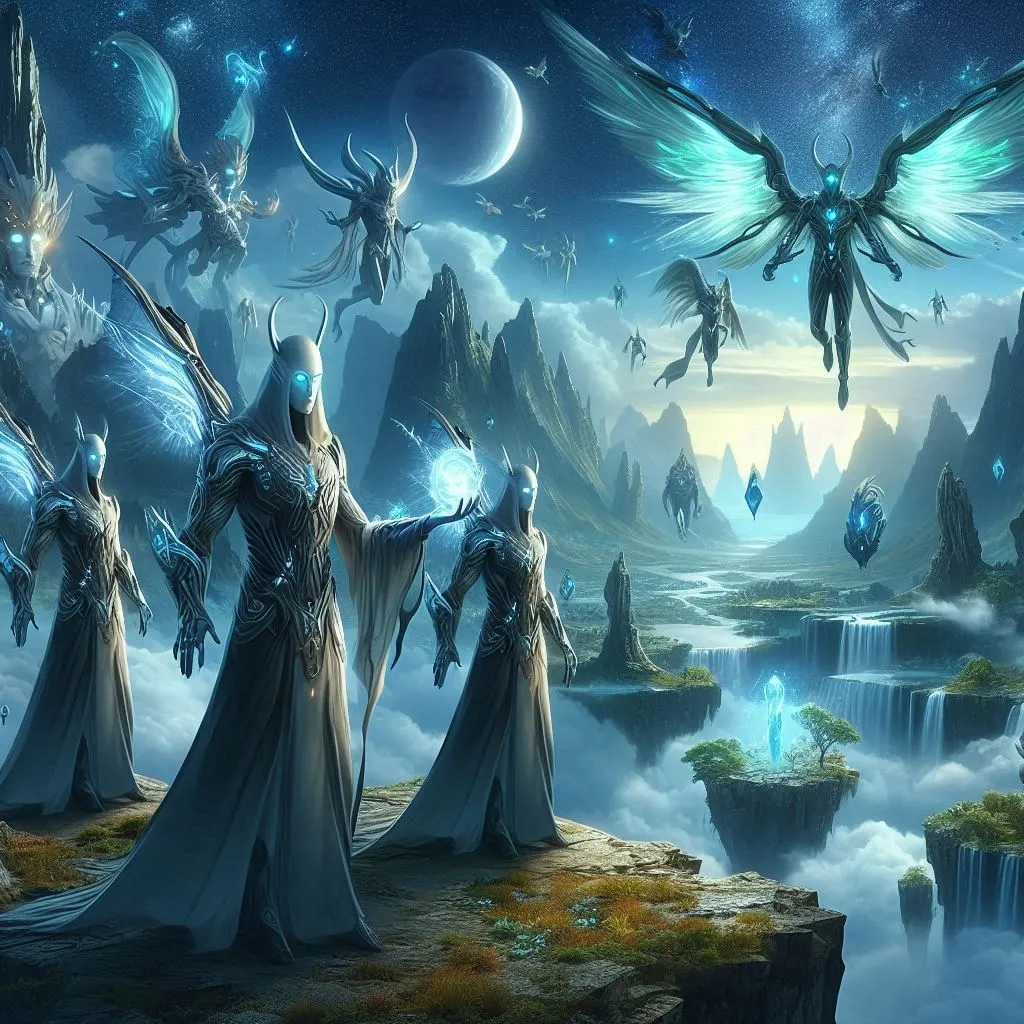
The Bible calls them Nephilim—the sons of God who took human women as wives, resulting in giants or demigods who disrupted the cosmic balance. These Nephilim echo the demi-god children are found everywhere e.g. Greek, Roman, Maya, Celtic, Japanese, and Sumerian mythologies.
These global similarities beg the question: How did so many ancient cultures, separated by geography and time, develop similar stories of councils of gods interacting with humanity?
It almost feels like a logical explanation to say that these stories are based on real interactions between humans and powerful beings.
In the Sumerian texts, the Anunnaki gods also descended to Earth, mingling with humanity. They created humans to serve them, but over time, the gods themselves began to interact with their creation, much like the Elohim did.
The Bible doesn’t go into great detail about the consequences of these unions, but the flood is often interpreted as God’s way of wiping out these Nephilim—perhaps to restore balance to the divine order.
In Sumerian mythology, the god Enlil was the one who initiated the flood, but Enki (who sympathized with humanity) secretly saved a remnant. Similarly, in the Bible, God initiates the flood to rid the world of its wickedness, but Noah is spared because of his righteousness.
The theme of divine judgment, followed by mercy and salvation, is central to both stories, and it’s clear that the Bible borrowed heavily from earlier myths. But then when you check the age of Noah and his offspring, you realize that they were no mere humans.
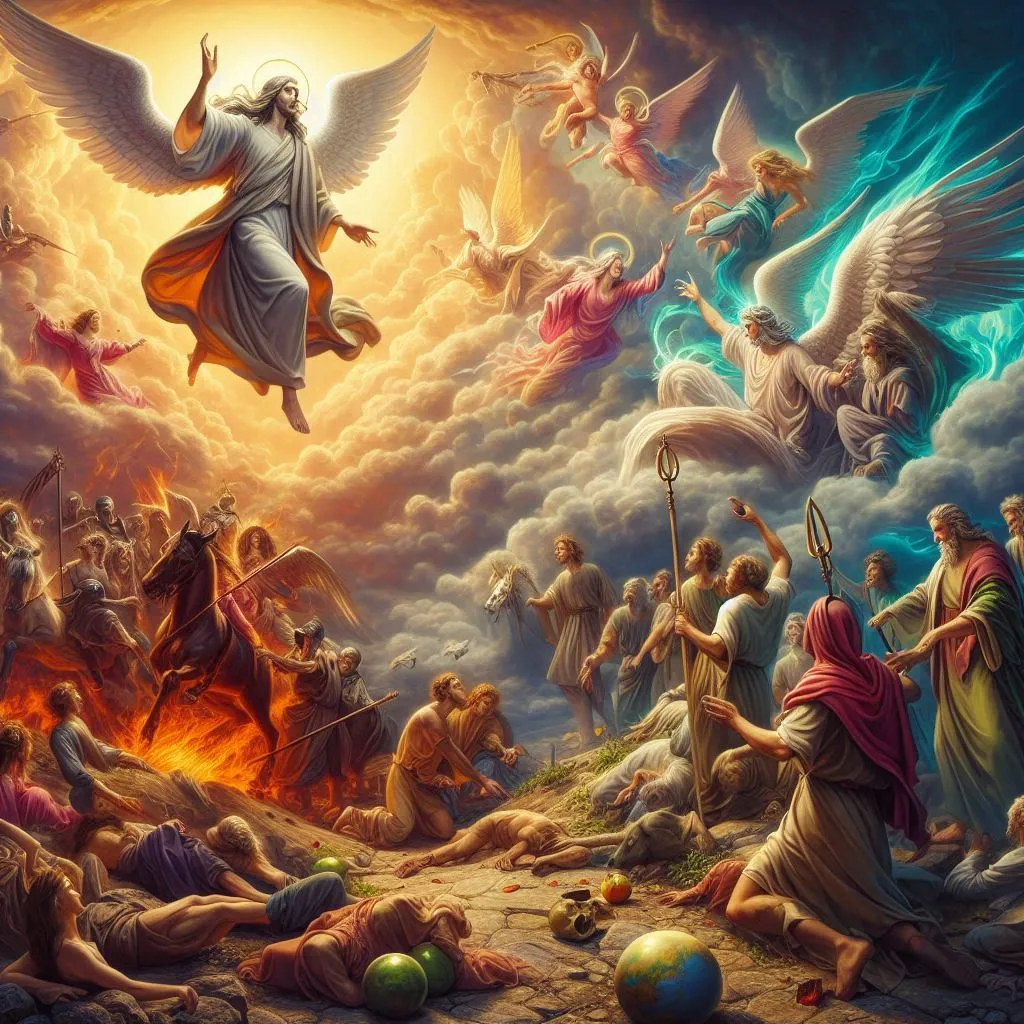
The Anunnaki and Elohim: Two Sides of the Same Coin?
The more I delve into these ancient texts, the more I see the Anunnaki and the Elohim as two sides of the same coin.
Both represent celestial beings who interacted with humanity, shaped humanity's fate and struggled with the consequences of their actions.
Both traditions speak of a flood meant to cleanse the world, a divine council debating the future of humanity, and the creation of human beings to serve the gods.
Both the Demiurge of Gnostic tradition and the Anunnaki of Sumerian lore appear to have created the physical world for reasons that seem self-serving, imprisoning humanity in a flawed reality.
Trapped In The Material World
These ancient tales suggest that the material world is filled with suffering and fear.
Only by recognizing the larger, divine truths beyond this limited plane will free the human soul, that is trapped here by its creator.
I explained how this echoes of what Mary and other spiritual figures have preached—that the true path to divinity involves transcending the physical and spiritual limitations imposed by these creators.
My Musical Sunday School Sessions - Hail Mary The Harlot
If you link that entrapment idea to the Anunnaki enhancing our DNA, they could have controlled a lot within that so-called: God Given Free Will.
Their genetic manipulation led to a species capable of complex thought and creativity but also plagued by existential angst and irrational behavior. This duality, born from their creation, reflects humanity’s ongoing struggle between our primal instincts and higher cognitive abilities.

Messing With Our DNA Messed With Our Minds
I used this theory to explain why humanity is capable of both incredible achievements and senseless destruction. The Anunnaki, like all creators, left their creations with imperfections, and those imperfections became deeply ingrained in our human psyche.
The existential angst that many humans experience—the fear of death, the search for meaning, the constant drive to achieve more—can be seen as the result of these genetic manipulations.
Looking at our DNA we are little more than chimps, we are all just animals. But animals live in harmony with nature and do not struggle with the issues humans do.
They live in the present, driven by instinct, while humans are constantly torn between their primal urges and their intellectual understanding of the world. This internal conflict, according to the theory, stems from our unnatural evolution, influenced by beings who had their own agenda.
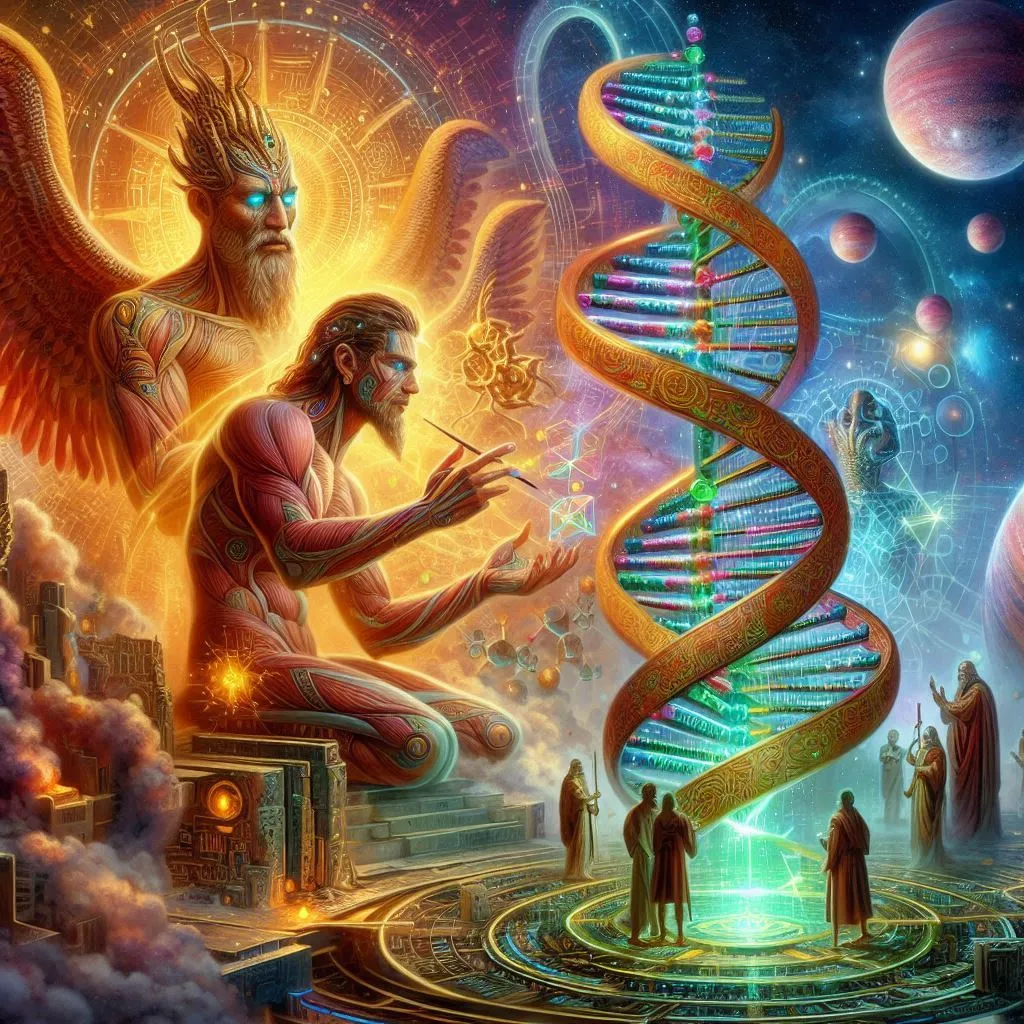
Bikini Bottom Line
As I prepare to move on from these Sumerian texts, I feel as though I’ve uncovered a hidden history—a history that connects the ancient world to the Bible in ways most modern readers never consider. The story of Genesis is not an isolated account, but part of a broader tradition of creation myths, divine councils, and cosmic struggles that spanned the ancient Near East.
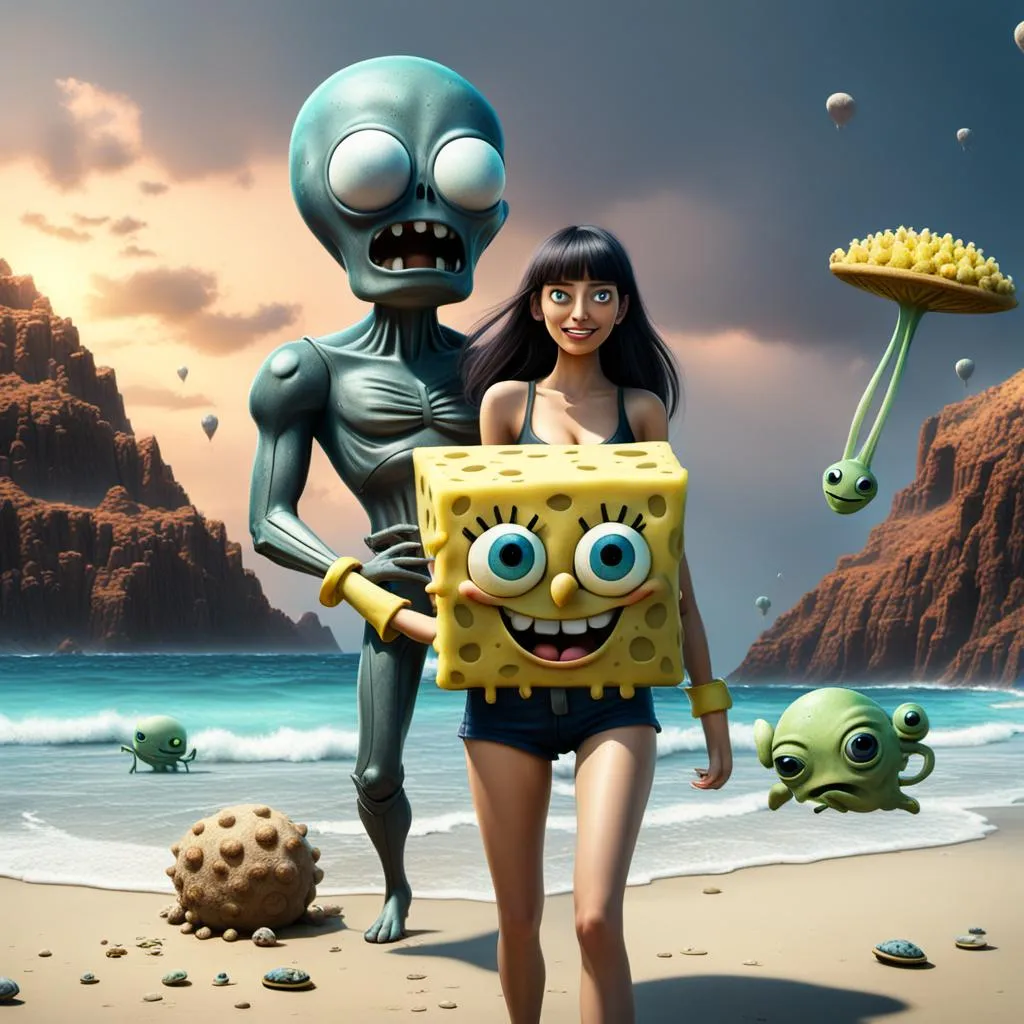
Next week, I’ll return to the Dead Sea Scrolls and the Gnostic writings, but I leave these Sumerian stories with a sense of awe.
They remind me that the Bible is not just a religious text, but a window into an ancient world where gods walked among men, councils of powerful beings debated our fate, and the floodwaters rose to cleanse the earth of our corruption.
𝑻𝒉𝒆 𝒓𝒆𝒔𝒕 𝒊𝒔 𝒉𝒊𝒔𝒕𝒐𝒓𝒚.

Thank Godness you made it till the end Pees, Love and I am out of here!
Previous Sunday School Sessions
My Musical Sunday School Sessions - 𝕭𝖊𝖋𝖔𝖗𝖊 𝕴 𝕿𝖔𝖚𝖈𝖍 𝕿𝖍𝖊 𝕯𝖊𝖛𝖎𝖑
My Musical Sunday School Sessions - 𝐖𝐚𝐬 𝐉𝐞𝐬𝐮𝐬 𝐁𝐨𝐫𝐧 𝐎𝐧 𝐂𝐡𝐫𝐢𝐬𝐭𝐦𝐚𝐬 𝐃𝐚𝐲?
My Musical Sunday School Sessions - The Secret Book of John (The Apostle) Part 2 (The Apple)
My Musical Sunday School Sessions - Funny Looking Angels
My Musical Sunday School Sessions - Thomas Told US Not To Look But To See
My Musical Sunday School Sessions - Hail Mary The Harlot
My Musical Sunday School Sessions - "Let´sTalk About Sin Baby"
My Musical Sunday School Sessions - "Know Thy Enemy (What´s The Satanic Bible Really About)"
My Musical Sunday School Sessions - "The 20 Commandments from the Satanic Bible"
My Musical Sunday School Sessions - The CIA & The Bible agree on One Thing "We Can Go Mental"
My Musical Sunday School Sessions - Out Of Body Experiences happened in the Bible & Dead Sea Scrolls
My Musical Sunday School Sessions - Infiltrated By The Unseen
My Musical Sunday School Sessions - Maybe Darwin & The Bible Were Right?
My Musical Sunday School Sessions - What Kinda Gods Fall From The Sky?
My Musical Sunday School Sessions - Did You Know The Bible told us to be vegetarian first and later to eat meat?
My Musical Sunday School Sessions - Why Noah's Flood Changed Everything
My Musical Sunday School Sessions - The Creation Story of Adam vs the Creation of Adamu
My Musical Sunday School Sessions - Will We Surpass Our Creator
My Musical Sunday School Sessions - Did Their DNA Engineering Mess Up Our Minds?
My Musical Sunday School Sessions - Why Are There So Many Gods In The Bible
My Musical Sunday School Sessions - God Tried To Drown Us All Because Of The Human Hybrids
[Source Pic](All by MyI & AI)
Disclaimer One: The texts I use for these sessions are real, although like many scholars my ignorance and arrogance might cause me to misinterpret things, or explain things from my limited perspective. I therefore appreciate all critical feedback.
Disclaimer Two: I think everyone has a right to believe, and a right to disagree. I try to take a light philosophical approach and add some humor. If you're offended please check yourself, because being offended by something written by a simpleton as WhyWhy is a signal that you might have bigger issues.